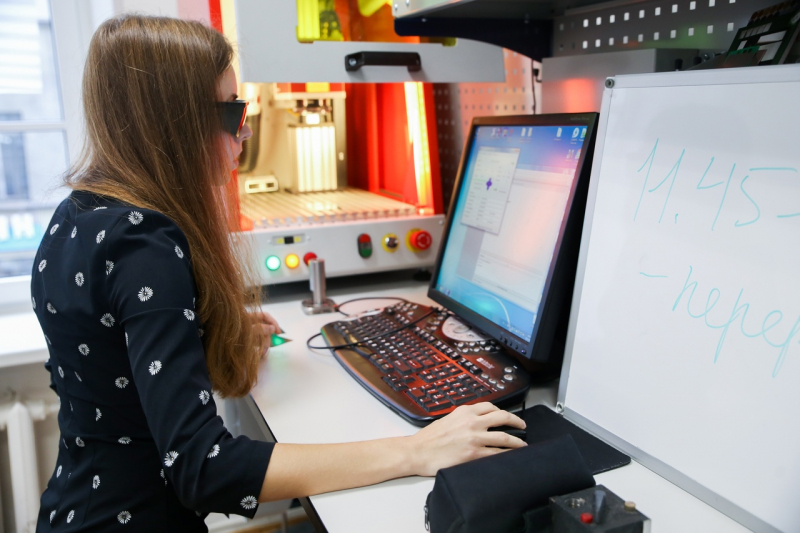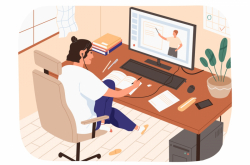With the widespread transition of universities to distance and blended learning, the topic of online education technologies has become especially relevant. It would seem impossible to carry out lab projects without physically accessing the equipment. However, the staff at the Faculty of Software Engineering and Computer Systems are now working on a cloud platform that will allow ITMO students, professors, and researchers to gain remote access to real and virtual lab equipment from anywhere at any time. Up to hundreds of people can use the platform simultaneously, as the technology offers group and, potentially, mass access to the equipment.
During a meeting as part of the ITMO.EXPERT project, the faculty’s staff and its dean Pavel Kustarev presented three cloud-based virtual laboratories.
Pavel Kustarev notes that the development of these educational solutions was not motivated by the pandemic; however, it did encourage greater and wider support for the university within Project 5-100 and stimulated development.
“Thanks to the experience acquired by our faculty over the years, the practical competencies of our staff members, and the active involvement of our students, we managed to develop and start implementing the first laboratories into the educational process,” he says.
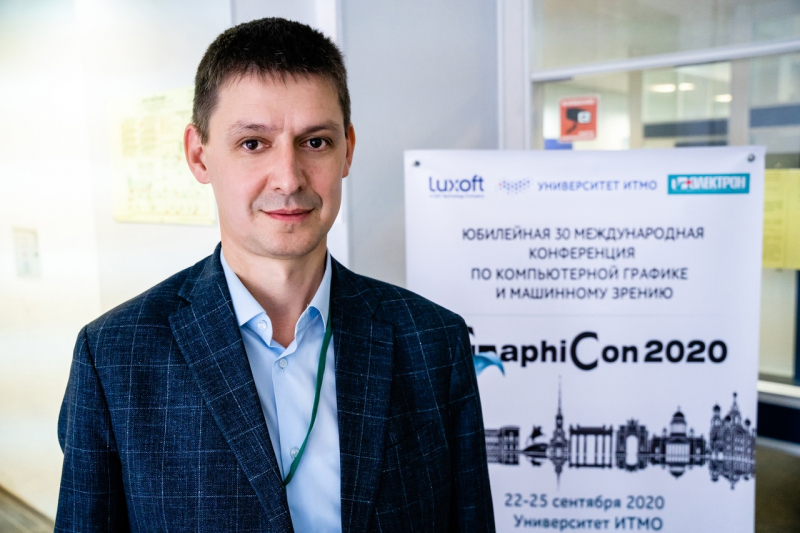
During the meeting, project managers presented three laboratories designed to solve a certain class of problems: ITMO.cLAB (a cloud laboratory with remote access to equipment), ITMO.IoT’S (a virtual studio for the Internet of Things), and ITMO.cVoAF (a cloud service for studying voice assistants).
These platforms allow users to access ITMO lab equipment via the internet, create IoT systems using virtual devices and sensors, as well as work with speech recognition technologies, and integrate these voice services into their projects.
All three solutions demonstrated the new platform’s features.
“These are just a few of the many ways to use this platform. Your educational program, disciplines, and research projects might need your own version of a platform-based laboratory,” notes Pavel Kustarev.
ITMO’s Cloud Laboratory
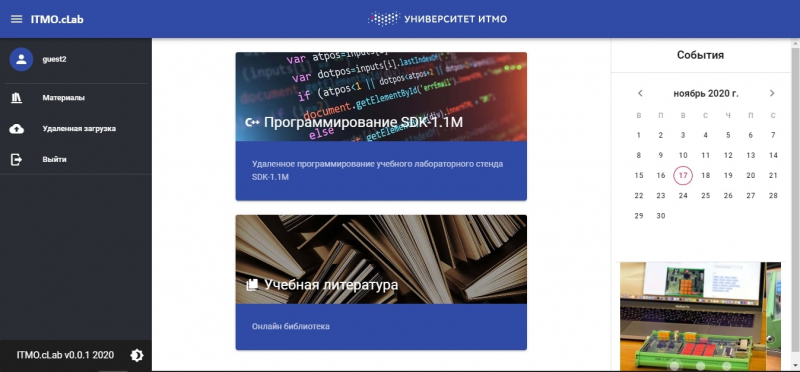
ITMO.cLAB is a service that provides students and professors remote access to laboratory equipment via their laptops, tablets, or smartphones. With its help, you can complete lab projects or course assignments, create a program for your thesis, conduct scientific research, or test your ideas remotely on real equipment.
The laboratory is available to ITMO professors, students, and interns, as well as online course participants, international students, and students of other universities (subject to an agreement with ITMO).
- Benefits for students
According to Arkady Kluchev, associate professor at the faculty and project manager of ITMO.cLAB, such laboratories can improve the teaching quality, provide remote access to equipment, and eliminate queues.
“The system will let students carry out laboratory projects even when they are abroad. As you know, at the end of the semester there are always people queuing up for equipment and our solution solves this problem – the laboratory is available 24/7. Moreover, we will also provide students with guidelines, articles, and books,” he says.
- Benefits for staff
Lecturers will be able to conduct full-fledged lab work online and have all the necessary documentation in just one place. The system will also reduce the time spent on checking assignments and let professors supervise the working process in real time.
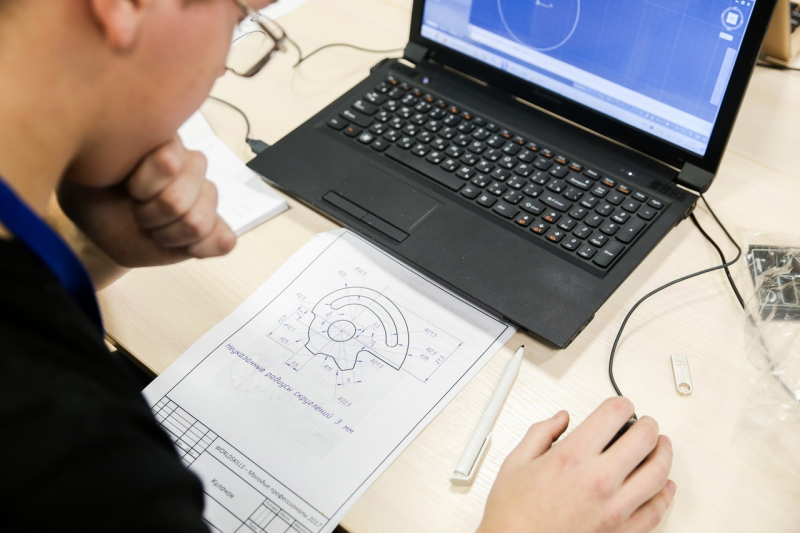
- Features
The educational infrastructure consists of student performance data, educational and methodological documentation, tests, an archive of students' assignments, modules for laboratory work, laboratory equipment, and remotely available simulators.
The microservice architecture of the platform makes it possible to change and expand the system. Users can add new components to maintain a variety of equipment and simulators, as well as connect hardware and software systems. It can also be expanded by connecting additional equipment such as physical services. The possible number of users depends on the allocated computing resources; it can reach several thousand people.
Users can also remotely download and run software on laboratory services at ITMO and run programs on real equipment that is as close as possible to industrial controllers.
ITMO.cLAB is situated at the ITMO campus on Birzhevaya Liniya. So far, only four training equipment are connected to the server. Since October 2020, 170 students have been using the platform as part of a Bachelor’s course in embedded systems and a Master’s course in software for embedded systems.
Students at the Faculty of Cryogenic Engineering will soon have access to the TPLab on ITMO.cLab.
If you have any questions about the platform, please contact the project manager Arkady Kluchev at kluchev@itmo.ru.
ITMO’s Internet of Things Studio
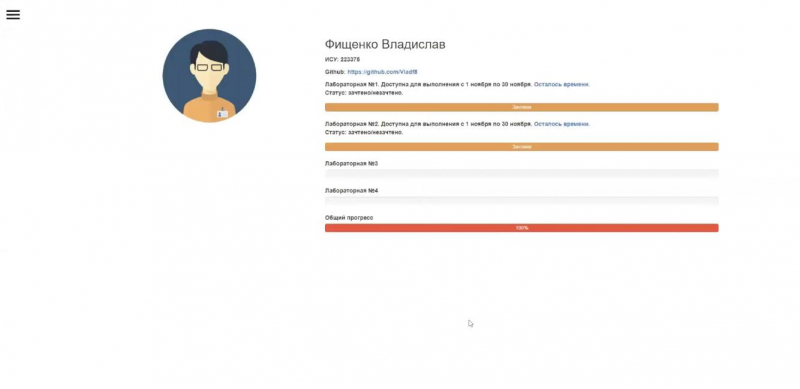
ITMO.IoT’S is a multifunctional cloud service that lecturers can use to teach students the basics of IoT technologies.
Here, you can create and configure virtual sensors and controllers, develop programs for virtual controllers (Arduino support included), and launch cloud services for processing IoT data. This system was created by students under the supervision of Vladislav Shmatkov, head of the faculty’s Internet of Things laboratory, and is based on Yandex.Cloud.
- ITMO.IoT’S and its key features
The platform provides not only the ability to compile and run programs for IoT equipment over the cloud but also to transfer the developed software to real controllers. So far, the IoT systems consist only of virtual components, but soon remote access services will be integrated into real devices at ITMO.cLAB.
ITMO.IoT’s includes a personal profile feature, which contains information on the student’s current lab projects, deadlines, and achievements, as well as a link to a GitHub repository where the students upload their code for the lecturers to check.
The admin panel allows you to upload articles, materials, and manage user rights.
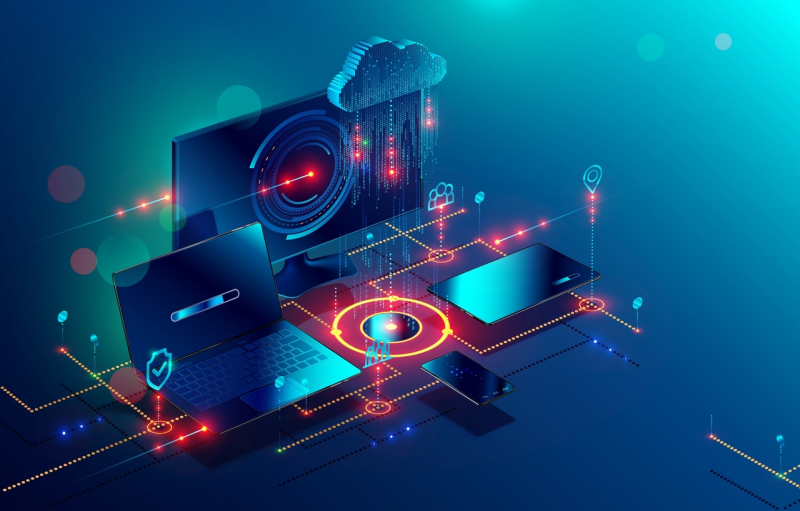
You can also add new laboratory projects and generally expand the functionality of ITMO.IoT’S.
“We’re studying the basics of the Internet of Things and try to explain to students how they can work with it: what systems they can create and what devices they can implement. Indeed, in IoT systems, data is just as important as hardware,” comments Vladislav Shmatkov.
Soon it will be possible to interact with real and virtual devices equipped with sensors and receive and process data about these interactions in the cloud, for example, to create a smart home or smart grid.
Vladislav Fischenko, a research engineer at the faculty, demonstrated the system’s operation using the example of creating a sensor in Python 3.7, as well as a virtual device consisting of a sensor and a virtual Arduino controller.
As the system is still in test mode, it can be only accessed upon request. If you would like to test the system or you have any questions, please send an email to shmatkovvlad@gmail.com.
ITMO’s Cloud Voice Assistants Framework
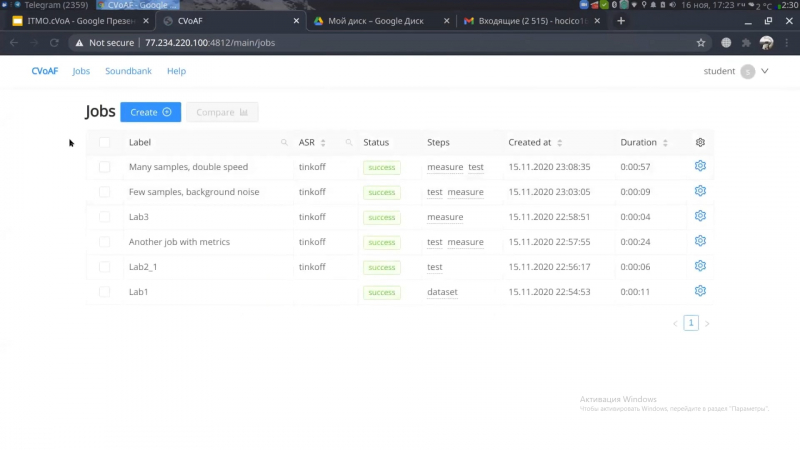
ITMO.cVoAF is a virtual lab for studying speech recognition technologies. It allows students to learn various aspects of working with ASR (Automatic Speech Recognition) systems. Unlike the first two laboratories, it is more focused on remote group use of complex information technologies and software systems.
“Students often don’t have direct access to the software, let alone the hardware-software complex. But it would make it easier to study speech recognition technologies and speech interfaces. ASR systems are often proprietary, which means that they are either closed and must be paid for or open and freely distributed, but difficult to install and use,” project manager Nikolay Klimov explains the importance of the platform.
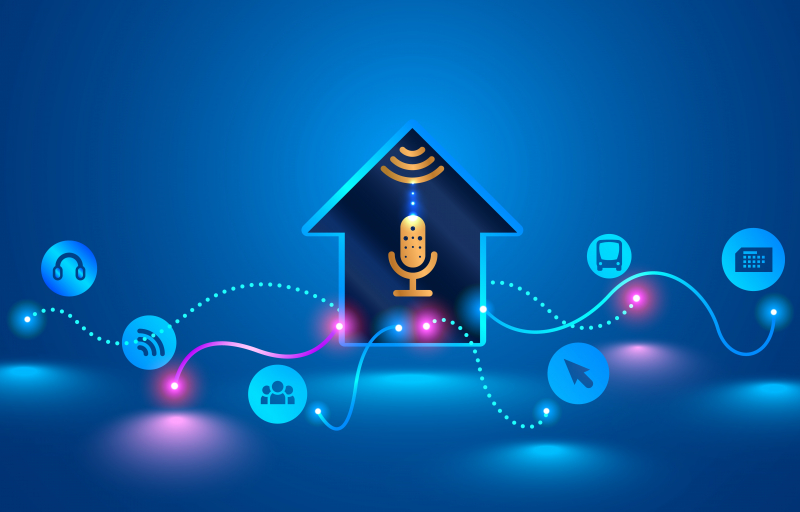
“The laboratory plays an important role in the development of computer and software systems, as voice interfaces are becoming an integral component of any app. For the most part, developers of software and hardware solutions do not have to have an in-depth understanding of ASR technologies, but using them without any understanding of the subject is also not good,” comments Pavel Kustarev.
That’s why the creators of ITMO.cVoAF have reduced the number of tech difficulties associated with installing and mastering ASR systems so that students can concentrate on choosing, configuring, and using ASR functions in their systems.
The lab’s allows users to:
- Design arbitrary data sets and expand them using algorithms for noise reduction and audio data processing;
- Evaluate speech recognition results;
- Conduct ASR training (acoustic model formation) on prepared datasets;
- Analyze ASR performance with the use of specialized metrics.
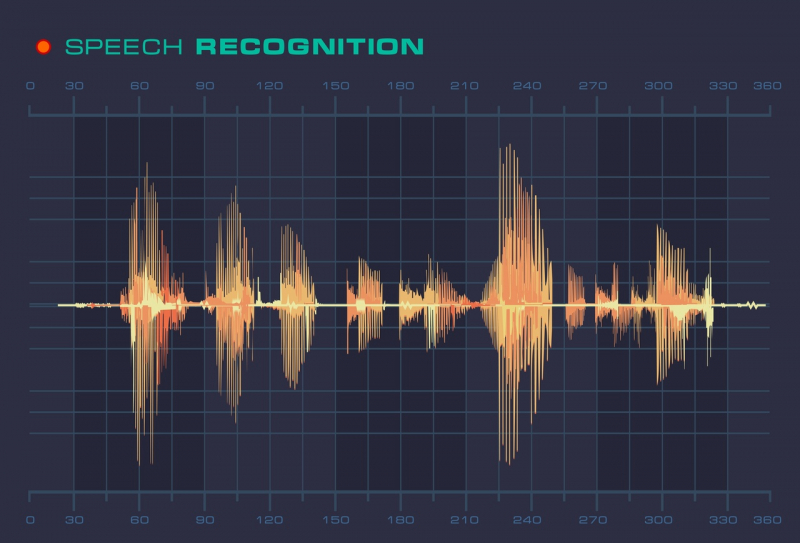
Laboratories in the educational process
For students, this is an opportunity to work remotely through the web interface and log into the system with the use of popular third-party authentication providers GitHub or Google, record and add their own datasets, as well as work in an isolated environment, and prepare and export reports.
Staff will also have their personal accounts through which they can access the list of students by group and monitor their progress and results.
The results of joint research work with the company MTS were used in designing the virtual lab. This work was carried out under the supervision of Dmitry Muromtsev, associate professor at the Faculty. The system is designed to work with technologies and equipment used to record speech samples by a laboratory on conversational AI created by MTS at the Faculty.
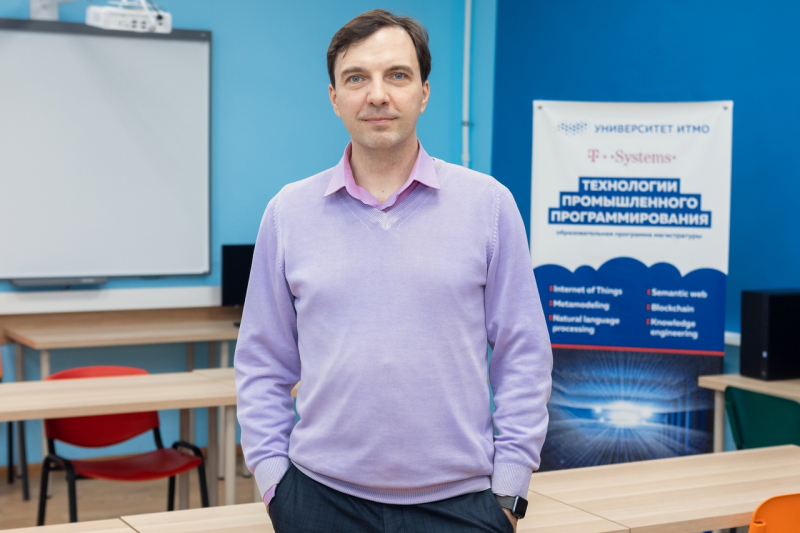
Test access to the ITMO.cVoAF system can be requested from Dmitry Muromtsev at mouromtsev@itmo.ru.
“Laboratory work is one of the most challenging types of educational activity. This is especially difficult to implement in the context of distance learning. We cannot always get expensive equipment and virtual labs compensate for these shortcomings. They can be relatively quickly upgraded and customized for the task and can help assess how well the students understand the material,” Olga Eliseeva, the head of the Department of Educational Quality Assurance, summed up the meeting.
